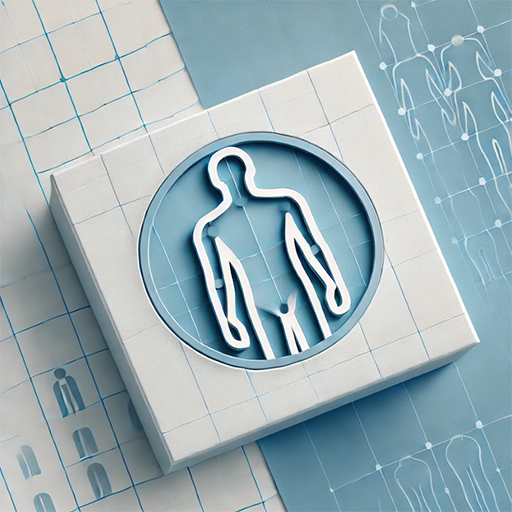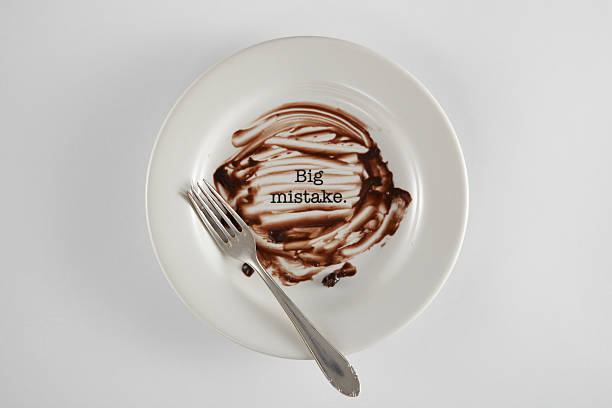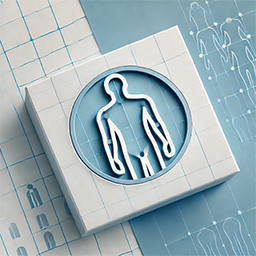Losing weight can feel frustrating when the scale doesn’t move, even though you’re trying hard. You might eat less, exercise more, or try new diets, yet nothing seems to change. The truth is, many people make small weight loss mistakes without even realizing it. These little habits—like skipping meals, not sleeping enough, or relying too much on “diet” foods—can add up over time. They don’t just slow down progress; they can also lower your motivation and even harm your health.
The good news? You don’t have to stay stuck. Once you understand what’s going wrong, you can take simple steps to fix it. With the right approach, you’ll lose weight in a healthier way and keep it off for the long term. In this guide, we’ll cover the 15 most common weight loss mistakes—and give you easy, science-backed solutions to help you get back on track, feel more confident, and reach your goals.
1. Skipping Meals
Skipping meals might seem like a shortcut to fewer calories. Some people think that if they skip breakfast or lunch, they’ll lose weight faster. But it can backfire. When you go too long without food, your blood sugar drops, which can make you tired, irritable, and more likely to crave junk food. Your body may also hold onto fat when you don’t eat enough, slowing your metabolism and making weight loss harder. Plus, skipping meals often leads to overeating later in the day, especially at night when your willpower is low.
Fix: Aim for balanced meals with lean protein, fiber, and healthy fats to keep you full and energized. Even a small, healthy meal or snack is better than skipping altogether. Try options like oatmeal with fruit, a chicken salad, or a handful of nuts with yogurt. Eating regularly helps you stay in control of your appetite and prevents those late-night binges that can undo your progress.
👉 According to Harvard Health, eating regularly helps prevent hunger spikes and binge eating.
2. Relying Too Much on “Diet” Foods

Many packaged foods labeled “low-fat” or “sugar-free” are loaded with hidden sugars, salt, or artificial ingredients. Food companies often remove fat and replace it with extra sugar or chemicals to make the product taste better. This can cause blood sugar spikes, cravings, and even weight gain over time. While these items may be lower in calories, they are not always healthier. In fact, relying too much on processed “diet” foods can make you miss out on the real nutrients your body needs.
Fix: Focus on whole foods like vegetables, fruits, lean meats, legumes, and whole grains. These foods are more filling and nutrient-dense, meaning they give your body the vitamins, minerals, and fiber it needs without the empty calories. Instead of reaching for a “sugar-free” snack bar, try an apple with peanut butter or a boiled egg with some veggies. Whole foods not only support weight loss but also improve your overall health in the long run.
3. Ignoring Portion Sizes
Even healthy foods can cause weight gain if you eat too much of them. Nuts, avocados, and whole grains are packed with nutrients, but they are also high in calories. Portion sizes in restaurants and even at home have grown over the years, making it easy to overeat without realizing it. A “small” soda or snack today is often much larger than it was decades ago, and this shift can trick your brain into thinking larger portions are normal. Over time, eating just a little too much at every meal can add up and slow down weight loss.
Fix: Use smaller plates, read food labels, and pay attention to serving sizes. Practicing mindful eating can also help. Take time to notice your hunger and fullness cues, and avoid eating straight from the bag or box. Try serving food in bowls or containers so you can clearly see how much you’re eating. This simple habit makes it easier to enjoy your meals without overdoing it and keeps your calorie intake in check.
4. Drinking Calories
Sugary drinks, energy drinks, and even fancy coffee beverages can pack hundreds of calories without making you feel full. A single soda or blended coffee drink can have as much sugar as several pieces of candy. Because these calories come in liquid form, your body doesn’t register them the same way it does solid food. This means you can drink a lot of sugar and calories without ever feeling satisfied, which often leads to overeating later. Over time, these hidden liquid calories can slow down your weight loss and increase your risk of health problems like diabetes.
Fix: Choose water, sparkling water, unsweetened tea, or black coffee. If you like flavor, add lemon, lime, cucumber, or fresh herbs for a natural twist. You can also try flavored sparkling water with no added sugar. These options keep you hydrated, help control cravings, and support weight loss without the extra empty calories.
5. Not Getting Enough Protein
Protein is key for weight loss. It keeps you full, reduces cravings, and helps maintain muscle while losing fat. When you eat protein, your body uses more energy to digest it compared to carbs or fats, which means you burn more calories. Without enough protein, you may feel hungrier, snack more often, and risk losing lean muscle instead of fat. This can slow down your metabolism and make it harder to keep the weight off long term. Getting enough protein also helps you recover faster after workouts and supports overall strength.
Fix: Include protein at every meal. Good sources are chicken, fish, beans, lentils, tofu, eggs, and Greek yogurt. You can also add protein-rich snacks like cottage cheese, nuts, or protein shakes if needed. Spreading your protein intake throughout the day helps you stay satisfied, protect your muscles, and keep your metabolism active while you lose weight.
6. Overeating “Healthy” Snacks
Nuts, granola, avocado, and dark chocolate are healthy—but they’re also calorie-dense. These foods are packed with nutrients, fiber, and healthy fats, but even small portions contain a lot of calories. For example, a handful of nuts can be more than 150 calories, and granola can have hidden sugars that add up quickly. If you eat these foods in large amounts without realizing it, the extra calories can stall weight loss and make it harder to see progress, even though you’re eating “healthy.”
Fix: Enjoy these foods in moderation. Measure small portions to avoid mindless snacking. Try pre-portioning nuts into small bags, using a spoon to serve granola instead of pouring straight from the box, or sticking to a few squares of dark chocolate instead of the whole bar. This way, you can enjoy the health benefits of these foods without going over your calorie goals.
7. Eating Too Fast
When you eat too quickly, your brain doesn’t have time to signal that you’re full. It usually takes about 20 minutes for your stomach to send fullness signals to your brain. If you finish your meal in just a few minutes, you may end up eating much more than your body actually needs. This often leads to overeating and unwanted weight gain. Eating too fast can also cause indigestion, bloating, and less satisfaction from your meals, making it harder to stick to healthy habits.
Fix: Slow down. Chew your food well, put your fork down between bites, and enjoy the flavors. Try to eat without distractions like TV or scrolling on your phone, so you can focus on your food. Taking your time allows your body to recognize when you’re satisfied, helping you eat less and enjoy your meals more.
8. Not Sleeping Enough

Lack of sleep disrupts hunger hormones, making you crave high-calorie foods. When you don’t get enough rest, your body produces more ghrelin, the hormone that increases appetite, and less leptin, the hormone that signals fullness. This imbalance makes you hungrier and more likely to reach for sugary snacks or fast food. Poor sleep also lowers energy, making it harder to exercise and stay active during the day. Over time, not sleeping enough can slow your metabolism and make weight loss much more difficult.
Fix: Aim for 7–9 hours of quality sleep each night. Create a calming bedtime routine and avoid screens before bed. Try dimming the lights, reading a book, or practicing relaxation techniques like deep breathing. Keeping your bedroom cool, dark, and quiet can also improve sleep quality. With consistent rest, your hormones stay balanced, your energy improves, and your weight loss journey becomes easier.
👉 The CDC notes that sleep is essential for weight management and overall health.
9. Relying Only on Exercise
Exercise is important, but it’s not enough on its own. Weight loss is mostly about what you eat. Studies show that diet has a bigger impact on weight loss than exercise alone. If you work out but still eat poorly, progress will be slow and frustrating. For example, running for 30 minutes may burn around 300 calories, but one fast-food meal can add up to more than 1,000 calories. This means you can easily cancel out the benefits of your workout if your diet isn’t balanced.
Fix: Combine regular exercise with a balanced, portion-controlled diet. Think of exercise as a tool to boost, not replace, good nutrition. Use workouts to strengthen your body, improve mood, and burn extra calories, while your diet creates the calorie deficit needed for weight loss. Together, they form a powerful combination that makes results faster, healthier, and easier to maintain.
10. Forgetting Strength Training
Many people focus only on cardio, like running or cycling. While cardio burns calories and improves heart health, strength training plays a different but equally important role in weight loss. Strength training builds lean muscle, and muscle tissue burns more calories at rest than fat does. This means the more muscle you have, the higher your metabolism, even when you’re not exercising. Without strength training, you may lose both fat and muscle, which can slow your progress and make it harder to keep the weight off.
Fix: Add strength training 2–3 times per week. Bodyweight exercises, resistance bands, or weights all work. You don’t need to spend hours in the gym—simple moves like squats, push-ups, lunges, or planks are enough to start building strength. Over time, adding resistance or lifting heavier weights will help you gain more muscle, boost metabolism, and create a more toned and healthy body.
11. Stress Eating
Stress triggers the hormone cortisol, which can lead to cravings for sugary or fatty foods. When cortisol levels stay high, your body goes into “survival mode,” making you more likely to store fat, especially around the belly. This often causes overeating or emotional eating, where food becomes a quick comfort rather than true hunger. Over time, this pattern not only slows weight loss but can also increase the risk of health problems like high blood pressure and diabetes. Learning to manage stress is just as important for weight loss as diet and exercise.
Fix: Find healthier ways to cope with stress—like walking, journaling, meditation, or talking to a friend. Even small steps, such as deep breathing exercises or taking a short break outside, can lower stress levels. Building these habits helps reduce emotional eating, keeps your hormones balanced, and supports long-term weight management.
12. Not Drinking Enough Water
Sometimes thirst is mistaken for hunger. When your body is low on fluids, you may think you need food, leading to unnecessary snacking. Dehydration can also slow metabolism, reduce energy, and make it harder to focus during the day. Even mild dehydration can affect exercise performance, leaving you tired and less motivated to move. Over time, not drinking enough water can stall weight loss and make healthy habits feel more difficult.
Fix: Drink at least 8 cups of water daily. Carry a reusable bottle and sip throughout the day. Drinking a glass of water before meals can also help control appetite and prevent overeating. If plain water feels boring, try adding lemon, cucumber, or berries for flavor. Staying hydrated supports digestion, boosts energy, and helps your body burn calories more efficiently.
13. Being Too Restrictive
Cutting out all your favorite foods can make dieting feel like punishment. When you label foods as “bad” or completely off-limits, cravings often grow stronger. This pressure can lead to binge eating, guilt, and giving up altogether. Strict diets may work for a short time, but they are rarely sustainable because they ignore the importance of balance and enjoyment. A healthy lifestyle should be flexible enough to include occasional treats while still focusing on nutritious choices most of the time.
Fix: Use the 80/20 rule—eat nutritious foods 80% of the time and enjoy small treats 20% of the time. Balance is the key. This approach allows you to enjoy things like pizza, chocolate, or ice cream in moderation without throwing off your progress. It helps you stay consistent, avoid feelings of deprivation, and build a long-term eating plan that supports both weight loss and happiness.
14. Not Tracking Progress

Without tracking, it’s easy to underestimate how much you eat or overestimate how much you exercise. Many people don’t realize that small snacks, extra condiments, or sugary drinks can add hundreds of hidden calories each day. At the same time, workouts often burn fewer calories than we think, which can create a false sense of progress. Over time, this gap between what you think you’re doing and what’s actually happening can slow weight loss or cause plateaus.
Fix: Keep a food journal, use a calorie-tracking app, or log workouts. Tracking helps you stay aware and adjust as needed. Writing down your meals makes you more mindful of portion sizes, while logging exercise shows you how much activity you’re really getting. Even simple notes about hunger, mood, or energy can reveal patterns that help you make better choices. Consistency in tracking keeps you honest, motivated, and moving toward your goals.
15. Giving Up Too Soon
Weight loss is not a straight line. There will be plateaus, ups, and downs along the way. It’s normal for the scale to stall or even go up slightly due to water weight, hormones, or muscle gain. Many people quit when they don’t see quick results, thinking their efforts are not working. But in reality, healthy weight loss takes time, and progress often shows up in other ways before it shows on the scale.
Fix: Stay consistent and patient. Focus on healthy habits, not just the number on the scale. Celebrate non-scale victories like better energy, improved sleep, looser clothes, or increased strength during workouts. These wins show that your body is changing, even if the scale doesn’t move right away. By keeping your focus on long-term health rather than short-term results, you’ll be more likely to stay motivated and reach your goals.
Final Thoughts: Small Fixes, Big Results
Losing weight doesn’t have to be complicated. Most people struggle because of small, everyday mistakes that sneak into their routines. These little habits—like skipping meals, not drinking enough water, or relying too much on cardio—can add up and stall progress. The good news is that by fixing these 15 common weight loss errors, you can create simple, sustainable habits that last a lifetime. Small changes really do make the biggest difference when you stay consistent.
Remember:
- Eat balanced meals with protein, fiber, and healthy fats to stay full.
- Stay hydrated so your body runs at its best.
- Move your body regularly, combining cardio and strength training.
- Get enough sleep to balance hormones and support recovery.
- Be patient with yourself, because lasting results take time.
Weight loss is a journey, not a race. Every step you take toward healthier habits brings you closer to your goals. Focus on progress, not perfection, and celebrate the wins along the way. With the right mindset and consistency, you’ll not only lose weight but also gain energy, confidence, and better health.
👉 Now it’s your turn: Which of these mistakes have you caught yourself making? Share your thoughts in the comments—I’d love to hear from you!
And if you found this helpful, share it with a friend who’s also on a weight loss journey. Small changes can make a big difference.



